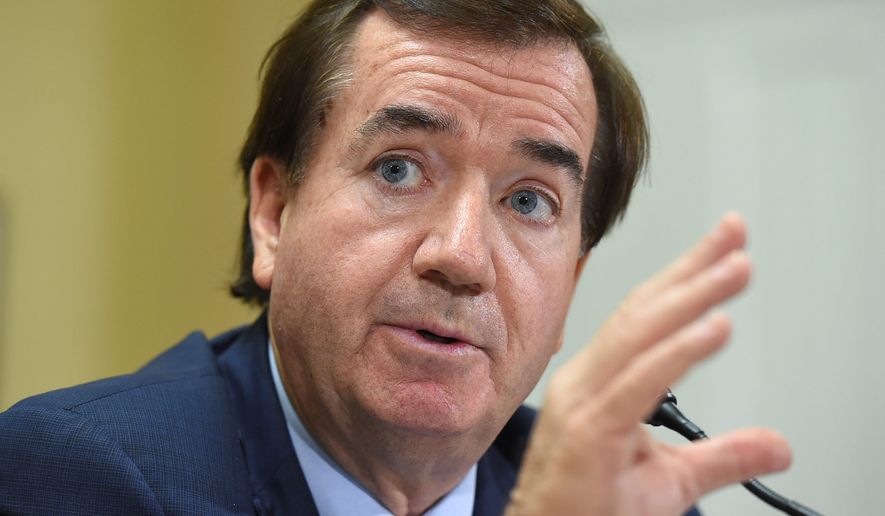House Republicans said they’ll vote next week to slap new sanctions on North Korea and Iran to punish the rogue nations for continuing to develop their weapons programs, as they try to force President Obama to drop his more accommodating stance toward the two enemy nations.
Both bills are expected to draw bipartisan support, as Democrats and Republicans say they are increasingly concerned by saber-rattling in both countries.
North Korea spooked the world when it announced testing of a hydrogen bomb this week. The U.S. disputes that, saying the detonation appears to be a less powerful atomic weapon — but still said North Korea’s fourth significant nuclear test since 2006 is worrisome.
Iran’s nuclear program is supposed to be halted under the terms of a deal Mr. Obama and other world leaders struck this summer, but the Islamic Republic has revealed continued activity on its ballistic missiles, which Capitol Hill says stands in violation of U.N. resolutions.
“It wasn’t supposed to be this way. The administration repeatedly told us while pursuing a nuclear deal that it would not let up the pressure on Iran’s support for terrorism, or its ballistic missile program. This legislation holds the administration to those commitments,” House Foreign Affairs Committee Chairman Ed Royce said.
His committee cleared a bill Thursday that would prevent Mr. Obama from lifting sanctions on Iranian banks and key government officials until the administration certifies they weren’t involved with proliferation.
That bill will be on the House floor next week along with another bill aimed at limiting North Korea’s access to U.S. currency and seizing assets related to its weapons programs.
The Obama administration has taken a less confrontational approach to Iran.
Secretary of State John Kerry, speaking to reporters Thursday, said the nuclear deal has already born major successes, including shipping most of its stockpile of uranium out of the country.
“With that, Iran literally shipped out its capacity, currently, to build a nuclear weapon,” he said. “We went from two months of potential break out time, two to three months, to nine months overnight. And in the next days, with the completion of their tasks, we will meet our target of being more than a year of breakout time.”
He said the U.S. remains vigilant about Iran’s missile activities, and his spokesman said there’s a process playing out in evaluating whether what Iran has done has violated its obligations.
On North Korea, Mr. Kerry said the U.S. has been deferring to the Chinese on how to handle North Korea, but he said that leeway is ending.
“We agree that there cannot be business as usual, and we agreed that we will work very closely together to determine the steps that we can take in order to address our increasing concerns about that nuclear test,” he said.
But Mr. Kerry’s spokesman declined to say what steps the administration was considering taking to confront North Korea.
“I think that you can safely assume that U.S. decision makers are considering a wide range of potential options here and I won’t speculate about what they will be,” said spokesman John Kirby.
• Stephen Dinan can be reached at sdinan@washingtontimes.com.




Please read our comment policy before commenting.